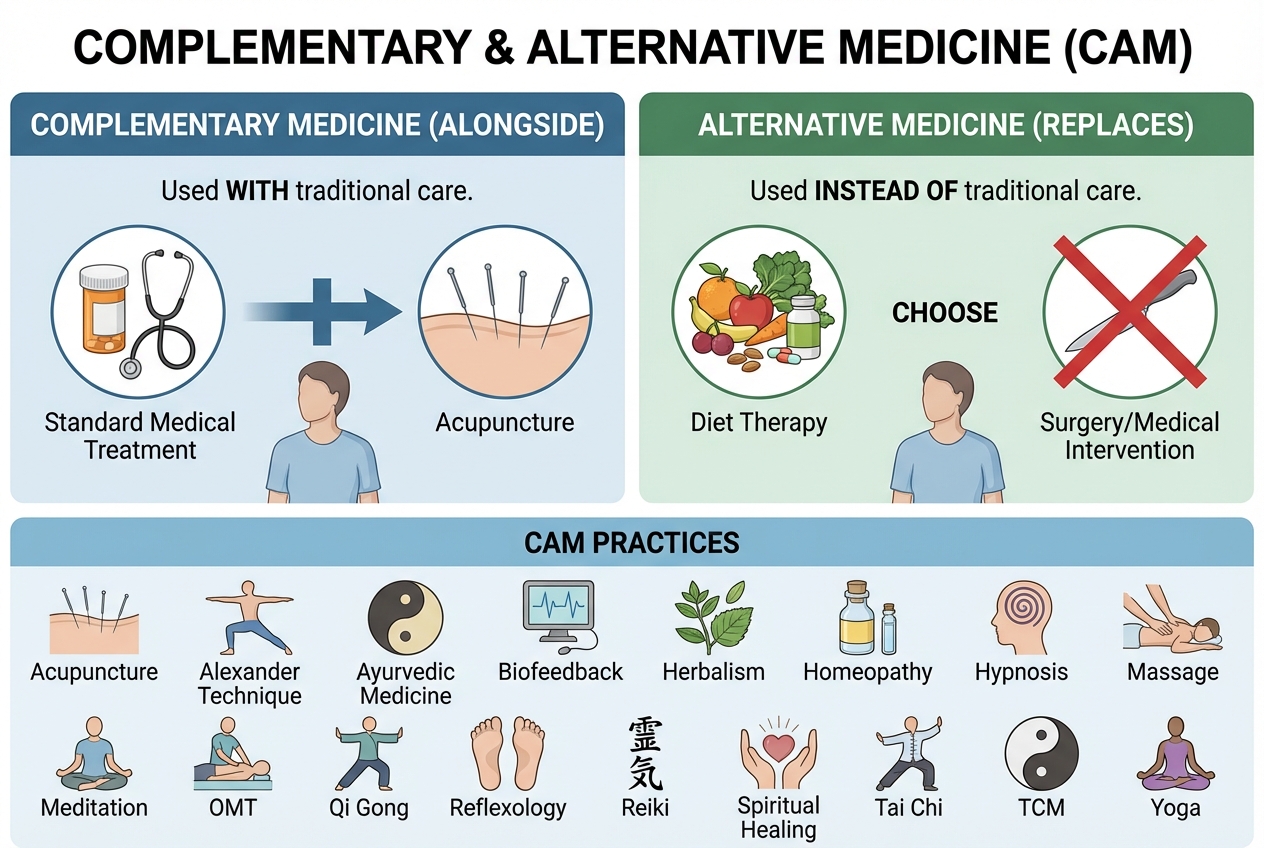
Complementary medicine refers to a set of diagnostic and therapeutic practices that are used alongside standard medical treatments. For instance, acupuncture might be employed to reduce a patient's pain after surgery when combined with conventional care.In contrast, alternative medicine replaces traditional medical treatments. An example is opting for a specific diet to address cancer instead of surgery or other medical interventions typically advised by a doctor. The National Center for Complementary and Alternative Medicine at the NIH defines complementary and alternative medicine (CAM) as encompassing a variety of practices, including acupuncture, the Alexander technique, Ayurvedic medicine, biofeedback, diet therapy, herbalism, holistic nursing, homeopathy, hypnosis, massage therapy, meditation, nutritional therapy, osteopathic manipulative therapy (OMT), Qi gong, reflexology, Reiki, spiritual healing, Tai Chi, traditional Chinese Medicine (TCM), and yoga.




